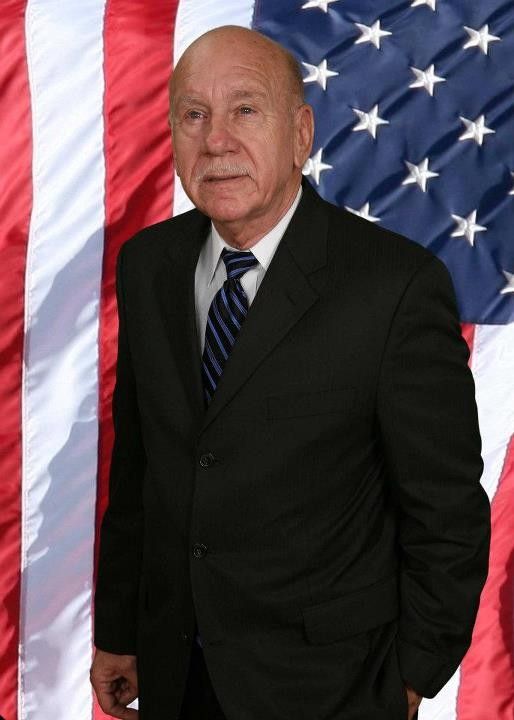Thank you for your consideration.
I am available upon request.
Dr. Charles Fredrick Tolbert EdD, Retired Master Sergeant and a Pastor
300 E. Oakland Park Blvd # 132
Wilton Manors FL 33334
United States
561-398-9025Note times manners in places does not cover the president elected
Article 1Section 4
The Times, Places and Manner of holding Elections for Senators and Representatives, shall be prescribed in each State by the Legislature thereof; but the Congress may at any time by Law make or alter such Regulations, except as to the Places of choosing Senators.
| Section 8 18 rights of Congress Congress shall have Power To lay and collect Taxes, Duties, Imposts and Excises, to pay the Debts and provide for the common Defence and general Welfare of the United States; but all Duties, Imposts and Excises shall be uniform throughout the United States; |
| To borrow Money on the credit of the United States; |
| To regulate Commerce with foreign Nations, and among the several States, and with the Indian Tribes; |
| To establish an uniform Rule of Naturalization, and uniform Laws on the subject of Bankruptcies throughout the United States; |
| To coin Money, regulate the Value thereof, and of foreign Coin, and fix the Standard of Weights and Measures;To provide for the Punishment of counterfeiting the Securities and current Coin of the United States; |
| To establish Post Offices and post Roads; |
| To promote the Progress of Science and useful Arts, by securing for limited Times to Authors and Inventors the exclusive Right to their respective Writings and Discoveries; |
| To constitute Tribunals inferior to the supreme Court; |
| To define and punish Piracies and Felonies committed on the high Seas, and Offences against the Law of Nations; |
| To declare War, grant Letters of Marque and Reprisal, and make Rules concerning Captures on Land and Water;To raise and support Armies, but no Appropriation of Money to that Use shall be for a longer Term than two Years;To provide and maintain a Navy;To make Rules for the Government and Regulation of the land and naval Forces; |
| To provide for calling forth the Militia to execute the Laws of the Union, suppress Insurrections and repel Invasions;To provide for organizing, arming, and disciplining, the Militia, and for governing such Part of them as may be employed in the Service of the United States, reserving to the States respectively, the Appointment of the Officers, and the Authority of training the Militia according to the discipline prescribed by Congress; |
| Article 2Section 1To exercise exclusive Legislation in all Cases whatsoever, over such District (not exceeding ten Miles square) as may, by Cession of particular States, and the Acceptance of Congress, become the Seat of the Government of the United States, and to exercise like Authority over all Places purchased by the Consent of the Legislature of the State in which the Same shall be, for the Erection of Forts, Magazines, Arsenals, dock-Yards, and other needful Buildings;—And |
| To make all Laws which shall be necessary and proper for carrying into Execution the foregoing Powers, and all other Powers vested by this Constitution in the Government of the United States, or in any Department or Officer thereof. |
The executive Power shall be vested in a President of the United States of America. He shall hold his Office during the Term of four Years, and, together with the Vice President, chosen for the same Term, be elected, as follows: Each State shall appoint, in such Manner as the Legislature thereof may direct, a Number of Electors, equal to the whole Number of Senators and Representatives to which the State may be entitled in the Congress: but no Senator or Representative, or Person holding an Office of Trust or Profit under the United States, shall be appointed an Elector. The Electors shall meet in their respective States, and vote by Ballot for two Persons, of whom one at least shall not be an Inhabitant of the same State with themselves. And they shall make a List of all the Persons voted for, and of the Number of Votes for each; which List they shall sign and certify, and transmit sealed to the Seat of the Government of the United States, directed to the President of the Senate. The President of the Senate shall, in the Presence of the Senate and House of Representatives, open all the Certificates, and the Votes shall then be counted. The Person having the greatest Number of Votes shall be the President, if such Number be a Majority of the whole Number of Electors appointed; and if there be more than one who have such Majority, and have an equal Number of Votes, then the House of Representatives shall immediately chuse by Ballot one of them for President; and if no Person have a Majority, then from the five highest on the List the said House shall in like Manner chuse the President. But in chusing the President, the Votes shall be taken by States, the Representatives from each State having one Vote; a quorum for this Purpose shall consist of a Member or Members from two thirds of the States, and a Majority of all the States shall be necessary to a Choice. In every Case, after the Choice of the President, the Person having the greatest Number of Votes of the Electors shall be the Vice President. But if there should remain two or more who have equal Votes, the Senate shall chuse from them by Ballot the Vice-President. The Congress may determine the Time of chusing the Electors, and the Day on which they shall give their Votes; which Day shall be the same throughout the United States. No Person except a natural born Citizen, or a Citizen of the United States, at the time of the Adoption of this Constitution, shall be eligible to the Office of President; neither shall any person be eligible to that Office who shall not have attained to the Age of thirty five Years, and been fourteen Years a Resident within the United States.Clause 1: The State Legislatures will pick the times and places for elections, but Congress can make laws to change the times and places for Senators and Representatives. [Originally, Congress could not change rules about where Senators were chosen, but the 17th Amendment made that out-of-date.]Clause 2: The Congress will meet at least once every year, at a regular time [originally, they were to meet on the first Monday in December, but Section 2 of the 20th Amendment changed that to noon on January 3, unless they make a law to move it to another day.]The fourth section of Article I establishes some basic guidelines for congressional elections and for Congress’ meetings. The first clause describes the delegation of power between the federal government (Congress) and state governments regarding elections to Congress. According to this clause, states are permitted to set different laws for their respective elections. But Congress may also make such laws and override essentially any state laws to the contrary. This second clause, today, is mostly moot. It requires Congress to meet at least once a year. The limits of communication and travel in the 18th century were so burdensome that a constitutional requirement that Congress gather one time in a year was necessary. But today, being a Senator or Representative is a full-time job in Washington, D.C. and Congress meets regularly throughout the year. Additionally, the last piece of this clause – that if Congress were to only meet once a year, that day should be the first Monday in December – was superseded by the 20th Amendment. Now, Congress must meet, at least, on January 3rd. Article threeThe executive Power shall be vested in a President of the United States of America. He shall hold his Office during the Term of four Years, and, together with the Vice President, chosen for the same Term, be elected, as follows:Each State shall appoint, in such Manner as the Legislature thereof may direct, a Number of Electors, equal to the whole Number of Senators and Representatives to which the State may be entitled in the Congress: but no Senator or Representative, or Person holding an Office of Trust or Profit under the United States, shall be appointed an Elector.The Electors shall meet in their respective States, and vote by Ballot for two Persons, of whom one at least shall not be an Inhabitant of the same State with themselves. And they shall make a List of all the Persons voted for, and of the Number of Votes for each; which List they shall sign and certify, and transmit sealed to the Seat of the Government of the United States, directed to the President of the Senate. The President of the Senate shall, in the Presence of the Senate and House of Representatives, open all the Certificates, and the Votes shall then be counted. The Person having the greatest Number of Votes shall be the President, if such Number be a Majority of the whole Number of Electors appointed; and if there be more than one who have such Majority, and have an equal Number of Votes, then the House of Representatives shall immediately choose by Ballot one of them for President; and if no Person have a Majority, then from the five highest on the List the said House shall in like Manner choose the President. But in choosing the President, the Votes shall be taken by States, the Representatives from each State having one Vote; a quorum for this Purpose shall consist of a Member or Members from two thirds of the States, and a Majority of all the States shall be necessary to a Choice. In every Case, after the Choice of the President, the Person having the greatest Number of Votes of the Electors shall be the Vice President. But if there should remain two or more who have equal Votes, the Senate shall choose from them by Ballot the Vice-President.The Congress may determine the Time of choosing the Electors, and the Day on which they shall give their Votes; which Day shall be the same throughout the United States. |









